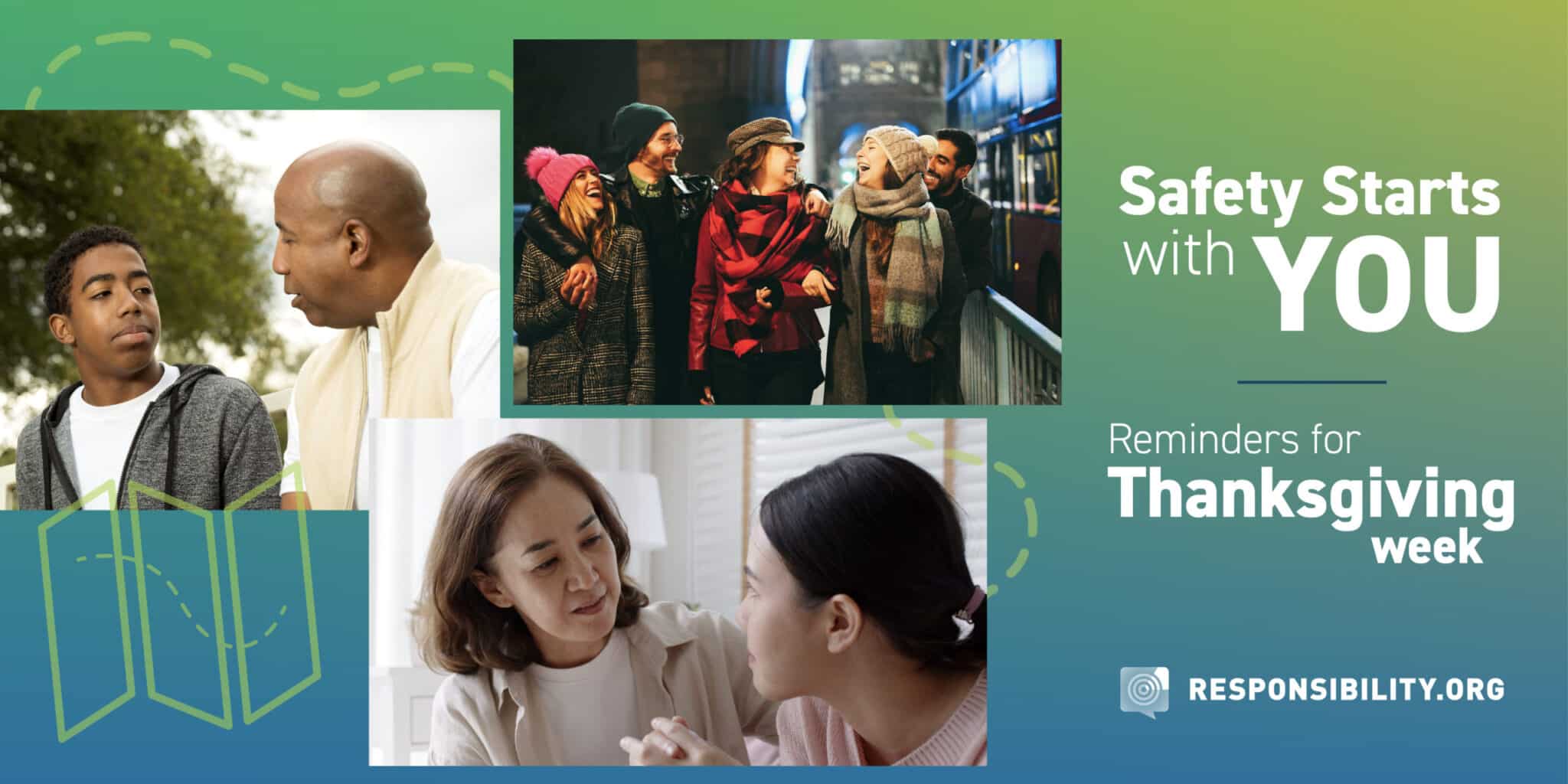Blackout Wednesday, or Drinksgiving, is right around the corner, and while I won’t be celebrating this year (I had my final blackout on June 7, 2013), I will be talking to both of my young adult children about it.
The day before Thanksgiving is one of the heaviest drinking days of the year for a couple of reasons. For many, it’s a long weekend away from work, a rare opportunity to catch up with hometown friends, and for those dealing with complicated family dynamics, a way to mentally check out and chemically numb the anxiety and stress family gatherings can create.
From 2016 to 2020, the 138 drivers involved in fatal crashes on Thanksgiving Eve (6 p.m. to 5:59 a.m.) were alcohol-impaired and young drivers ages 21-24 represented the largest percentage (44%) of alcohol-impaired drivers involved in fatal crashes on Thanksgiving Eve.
The term Blackout Wednesday comes from the blackouts, or memory loss, that can result from binge drinking, defined as four or more drinks in succession for women and five or more drinks in succession for men. These guidelines are helpful for adults, but fall short where kids and adolescents are concerned. Adolescence, and the brain development that defines it, is not completed until around age 25, and until then, alcohol affects teen bodies and brains differently.
Binge drinking is more common in adolescents and young adults than in adults over 35 because while young people may drink less frequently, they drink in higher quantity during these sessions.
The best defense against underage drinking in general and binge drinking in particular is a solid, consistent, evidence-based offense. The earlier, and more often, we talk to kids about the dangers of underage alcohol consumption on the adolescent brain and body, the more likely our kids are to make wise, informed choices about drinking.
In order to encourage parents to initiate frequent, fact-based discussions about alcohol, I offer the following conversational fodder.
There’s a reason the legal drinking age is 21. The adolescent brain is still in a delicate state of change and development until around 25, and alcohol causes both short-term and permanent damage to the brain and researchers can see this damage on brain imaging. The hippocampus, the seat of memory formation, is often smaller in teens who drink, and researchers have also observed thinning in the frontal lobe, the area of the brain that executes all of the higher-level, organizational management thinking. The “adulting” part of the brain, if you will.
Teens are less likely than adults to sense just how impaired they are, and therefore more likely to take risks such as drunk driving or riding with a drunk driver based on their flawed understanding of just how intoxicated they are.
Girls are at higher risk for many negative outcomes of binge drinking because girls have smaller bodies with a higher percentage of fat than boys, and produce less of an enzyme the body needs to break alcohol down, so more alcohol makes it into their bloodstream.
Binge drinkers are far more likely to black out as a result of their drinking, and blackouts are brain damage, plain and simple. Blacking out is not merely the loss of memories; it is an alcohol-induced inability to form memories in the first place. What’s more, if young adults find they black out after drinking less alcohol than their peers, that’s a massive red flag that they are at increased risk for alcohol use disorder.
At the close of these conversations, make sure your kid knows that because their safety is your primary concern, you will always be available to give them a safe ride home from their holiday celebrations.

Jessica Lahey is the New York Times bestselling author of The Gift of Failure and The Addiction Inoculation. She is a substance use prevention coach at Sana at Stowe, a medical detox and treatment center in Stowe, Vermont, and her daily videos on substance use prevention can be found on Instagram (@teacherlahey) and TikTok (@jesslahey).

